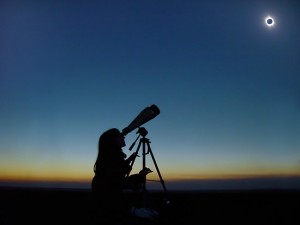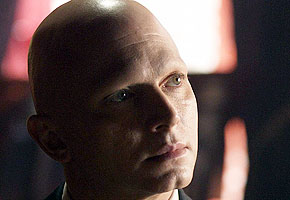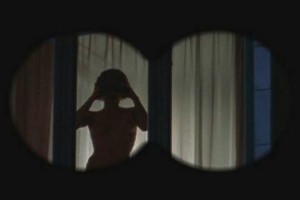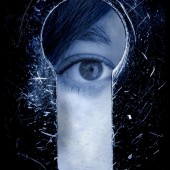35 Observation

“I like to watch…”
Chauncey Gardner, by Peter Sellers in Being There

Symbols and Color
- Atom: Scholar Set
- Automobile: Mode Group
- Equipoise: Neutrality “All things being equal”
- Spade: Assimilative Axis
- Border Color: Yellow Scholar Set
Implications in the Upright Position or Positive Pole:
In nature, few animals possess the visual acuity of the owl. Able to adjust to the dark of night and equally of the brightness of day, it also has 110 degree field of vision, actually less than a human. But what makes it remarkable is that unlike a human who can focus only in one direction, an owl can see out of each eye independently and binocularly, at the same time. This is true observation. Until it detects motion of its prey, it remains still and silent. Its clarity and focus is the hallmark of owl.
Card messages in the Illuminated position.
+ Clarity
(Witness, observer, onlooker, analyst, absorption, collector, attentive, academic)
- Look before you leap is good advice. It is necessary to gauge the distance you have to travel. Be exact. But still don’t forget you have to make the jump.
- Keep your eyes open and pay attention. Refrain from conclusion just yet.
- The ability to see the truth depends upon the clarity of your vision. Looking before you leap is useful to know the distance you must span. Have you seen enough to decide how to proceed? If not, look open your eyes wider or clean your lenses.
- Get clear on the situation. Act once you see what is going on.
- Watch and learn. Acquire information. Make a move only after you’ve seen all you can.
- Peripheral vision is a part of sight people seldom take notice of until there is a slight movement ‘out of the corner my their eye.’ There are things going on at the periphery. Waste not, want not.
- Witness. Your testimony of your observations are key in finding the facts in this situation. Are you watching?
- Wipe off your glasses or windows. You are looking at things through a very distorted lens.
- What is in your line of sight but being overlooked? Blink and refocus.
- Have you seen enough to decide how to proceed? If not, open your eyes wider or take off the blinders! Act once you see what is going on.
- Get clear on the situation. Sometimes it helps to see through different lenses. Ask a confidant.
- Shed some new light on your surroundings. The best way to combat S.A.D. (Seasonally Affected Disorder) is to have the full spectrum of luminescence illuminate your vision. Just allowing other colors into your line of sight will brighten your outlook.
- The ‘fair witness’ is one of the most sought after positions in the court system. Know that recording all you see and hear, impartially, can make you of great value.
- Leave it to humorist Will Rogers to remind us that, “People’s minds are changed through observation and not through argument.” Show others what you mean with examples not with words.
- Observation is the key tool in science, not projection. Seeing what-is offers the possibility of noticing things that are present that you didn’t expect, anticipate, or require. Measure everything honestly and make sure your device is calibrated.
Quotations that Illustrate this Pole
- “All ideas come about through some sort of observation. It sparks an attitude; some object or emotion causes a reaction in the other person.” Graham Chapman
- “From the standpoint of observation, then, we must regard it as a highly probable hypothesis that the beginnings of the mental life date from as far back as the beginnings of life at large.” ~ Wilhelm Wundt
- “Ignorant people see life as either existence or non-existence, but wise men see it beyond both existence and non-existence to something that transcends them both; this is an observation of the Middle Way.” ~ Lucius Annaeus Seneca
- “It’s a great mistake, I think, to put children off with falsehoods and nonsense, when their growing powers of observation and discrimination excite in them a desire to know about things.” ~ Anne Sullivan
- “Nothing has such power to broaden the mind as the ability to investigate systematically and truly all that comes under thy observation in life.” ~ Marcus Aurelius
- “People’s minds are changed through observation and not through argument. ” ~ Will Rogers
Interpretation of the Reversed Position or Negative Pole
The peeping Tom or stalker enjoys surveillance just as much as the NSA. Surreptitious Observation hides the fact that you are watching someone else. The eye through the key hole is an anachronistic image from a time long ago; but it signifies that for as long as humans have been able to see they have spied on
one another. Many human beings, facing the complexity and speed at which information is thrown at them, have opted to become bystanders instead of players. It renders Democracy more impotent and opens the door to those whose modes, particularly Power and Aggression, dominate debates and fill the empty spaces left by those otherwise impotent and uninvolved.
Card messages in the Shadow position.
– Surveillance
(Spying, vicarious, invisible, disengaged, voyeur, bystander, watcher, spectator, onlooker, insular, stand-offish, covert, ogle)
- A Peeping Tom’s is covertly watching. Surveillance is an inappropriate use of power. Call the authorities.
- Voyeurs live life vicariously through surveillance. They use stealth to spy and gain information without risking being seen. Who’s the spy? Are you being stalked?
- Spectators feed off of the actions of others. They seldom if ever get involved. Time to get into the game.
- If you are caught watching, and doing nothing, fess up! Lying about it will only damage you.
- Wipe off your glasses or windows. You are looking at things through a very distorted lens.
- Have you seen enough to decide how to proceed? If not, open your eyes and take off the blinders. Do something as soon as you see what’s going on.
- If you are a bystander and doing nothing, time to jump in and offer some help.
- Even a so-called ‘black-light’ can illuminate negative space and reveal hidden details in a way that brings things to life. Remember, it is what one is not visible to the naked eye which is present.
- Are you on the outside looking in? Avert your eyes or get in the game. Reclaim your attention from living vicariously.
- Famed 20th century mystic and teacher Jiddu Krishnamurti noted that, “The ability to observe without evaluating is the highest form of intelligence.” Are you paying attention to those things around you or just staring off into space?
- Remember the Roman Coliseum? The spectators feed upon the actions of those in the arena. Someone is in the stands calling for blood. Look to see who is the rabble-rouser and watch out; the blood being sought might be yours.
- Online, there are “trolls” who standby and pounce rather than risk asserting their opinion. They spy on you to gain information without risking being seen. Are you being deceived? Expose the spy?
- The bored watch TV, look at their phone, or surf the web, and achieve nothing. The Black Mirror shows you only your Shadow self or worse, drags you into darkness of someone else’s making. Escape your rut and get outside: literally and figuratively.
- As the Neutral Mode, people mistake it for being objective when it is actually being passive. They think that nullifying their actions makes them more effective, when in fact, it makes you less effective. Slide to one of the other six modes and make an active choice.
- Peeking around corners at someone when they aren’t watching or can’t see you has a delicious power to it. The kind that one has when there is no responsibility or risk to the viewer. This could be a useful tactic. But just remember that if you are surreptitiously watching someone; couldn’t someone be doing the same to you? Maybe come out from behind the curtain?
Quotations that Illustrate this Pole
- “Anarchism is founded on the observation that since few men are wise enough to rule themselves, even fewer are wise enough to rule others.” ~ Edward Abbey
- How pathetically scanty my self-knowledge is compared with, say, my knowledge of my room. There is no such thing as observation of the inner world, as there is of the outer world. Franz Kafka
- Laws and customs may be creative of vice; and should be therefore perpetually under process of observation and correction: but laws and customs cannot be creative of virtue: they may encourage and help to preserve it; but they cannot originate it. ~ Harriet Martineau
- Observation is an old man’s memory. ~ Jonathan Swift
- One man’s observation is another man’s closed book or flight of fancy. ~ Willard Van Orman Quine
Relevance in the Michael Teaching
 Essences tend to like Observation Mode because it allows a person the flexibility to shift to a specific behavioral style when necessary. About half of the world population resides in the Observation mode making itself an obvious when we see the shear number of people in the world who seem like absent minded bystanders watching the world pass by.
Essences tend to like Observation Mode because it allows a person the flexibility to shift to a specific behavioral style when necessary. About half of the world population resides in the Observation mode making itself an obvious when we see the shear number of people in the world who seem like absent minded bystanders watching the world pass by.
Often passive to act but responsive when acted upon is the very dichotomy of the Mode itself. Their is an innate tendency for not looking beyond the immediate or near term trends and thus follow the lead of those in other Modes, particularly Power, Aggression, and Passion Modes. However, we must remember that the Overleaves are a diverse mix of impulses and predilections so that anyone might vary or diverge greatly in the way an individual may appear. In the most extreme case, Observation Mode people can appear “invisible” preferring to watch than to be seen. Leaving others with the impression of something not quite being reported or being said until asked or drawn out. On the other side, when tempered with or enhanced by say Intellectual Center and Realist Attitude, it is difficult to find anyone better at reporting “the facts” in an unvarnished way.

In the Michael Teaching all the Assimilative Overleaves are associated with a Scholarly or astutepoint of view. Characteristic of such people might be a monotone way of expressing themselves, not for lack of emotion, but for tendency to be moderate and measured in their output. But if you listen carefully, what can be conveyed might be the clear headed solution to whatever problem or challenge you face.
Famous People
Jeff Bridges, Mr. Spock, Gertrude Stein, Paul McCartney, Michael J. Fox, Queen Elizabeth II, Michael Caine, Carlos Castaneda, Pres. Jimmy Carter, James Taylor, John Lennon, Augustus Caesar, Mark Twain, Chevy Chase, Roger Ebert, Justin Timberlake, Jennifer Aniston, Margaret Mead, Catherine Zeta-Jones, Walter Cronkite, Switzerland, Andy Warhol, Richard Gere, Paul Gaugan, Steven Spielberg, William Shakespeare,
Cultural Meaning
“Look where you are going!” An admonition that seems sorely in need of being observed these days escapes what might be called common sense and has retreated in the face of greed, fad, fear, and arrogance. Observation has a time needed requirement to it. What appears might be readily identified, but not necessarily understood in a given context without the opportunity to ponder or continue to observe. Science thrives on long term observations to gather data and assess information about processes which ultimately provide the true knowledge we depend. While the information age (specifically the main vehicle – the Internet) pours images for us to watch and absorb, little useful digestion and comprehension of clear meaning is available at the speed at which they are conveyed.
 Many human beings facing the complexity and speed at which information is thrown at them have opted to become bystanders instead of players. It renders Democracy more impotent and opens the door to those whose modes, particularly Power and Aggression, dominate debates and fill the empty spaces left by those otherwise impotent and uninvolved.
Many human beings facing the complexity and speed at which information is thrown at them have opted to become bystanders instead of players. It renders Democracy more impotent and opens the door to those whose modes, particularly Power and Aggression, dominate debates and fill the empty spaces left by those otherwise impotent and uninvolved.
Yet, no where is the problem of surveillance and voyeurism so problematic as Internet pornography. Instead of risking relationships or exploring sexual fantasy, it has become an easy outlet for those afraid of being identified and labeled. The very act the voyeur commits when objectifying a person on the video screen. And let us not forget that for every voyeur there is an exhibitionist somewhere to meet the need.
You might be an Observer if…
- I usually have a “wait and see” attitude toward most events or circumstances.
- Making an immediate move is not common for me, I try to observe what is happening.
- If I cannot see in a crowd, I can experience a sort of loss or frozeness as to how to proceed.
- Some people say I don’t act fast enough because I tend to seem frozen like a deer in the headlights.
- I prefer to watch and analyze a situation and then make a choice of how to proceed.
- I wonder if I am assertive enough because when I speak people don’t seem to notice or they fade out at the sound of my voice.
- My greatest goal is to be attentive and gather all the factors that are happening in a situation.
- I relate to Chauncy Gardner in Being There, who said: “I like to watch.”


Sorry, the comment form is closed at this time.